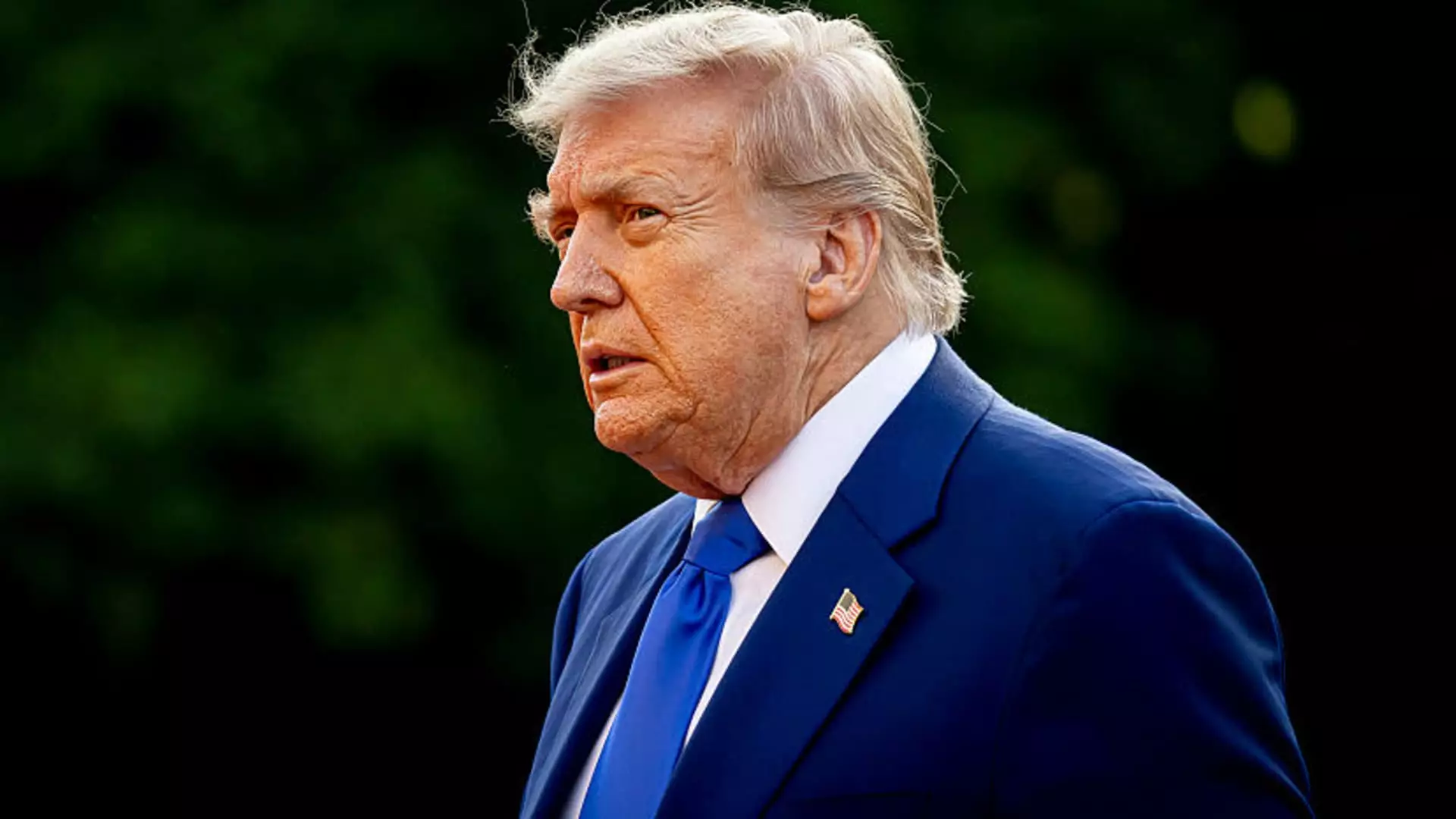In the fast-paced world of trade negotiations, timing is everything. However, when it comes to President Donald Trump’s approach to tariffs and trade deals, the concept of a firm deadline seems more like a suggestion than a guarantee. Recently, White House Press Secretary Karoline Leavitt provided a glimpse into the administration’s possible maneuvering around the supposed deadlines for trade agreements. Instead of viewing the upcoming July deadlines as critical, Leavitt hinted at a more flexible approach, allowing Trump to alter his course based on international negotiations. This strategy reflects a broader pattern of improvisation that has characterized Trump’s presidency.
The insistence that the July deadline isn’t set in stone opens the door to speculation and uncertainty. It’s like playing poker with an open hand: while the bluff may be effective for a time, savvy players know to keep their options open. The administration conveys a willingness to adapt, but one must ask: does this really signal masterful negotiation skills or just the chaos of unreadiness? By exhibiting a willingness to extend deadlines, Trump may attempt to project stability, but his inconsistent stance could create an unstable international environment, leading to mistrust among allies and adversaries alike.
The Illusion of Reciprocity
One of the most contentious aspects of Trump’s trade policies is the notion of “reciprocal tariffs.” This concept implies a bilateral approach — if one country imposes a tariff, the affected country gets to respond in kind. However, what is often lost in the rhetoric is that reciprocity in trade isn’t just about slapping tariffs on each other; it’s also about fostering relationships that can lead to beneficial outcomes for all parties involved. By unilaterally dictating terms and threatening steep tariffs — as Trump did with the European Union — the administration risks isolating the U.S. rather than strengthening its position in the global market.
Recent comments from members of Trump’s economic team suggest that the tariffs might not return to their full, punitive rates if “good faith” negotiations are underway. This creates a paradox where America’s position is predicated on whether foreign governments can appease Trump’s demands. However, without consistent and clear guidelines for what constitutes “good faith,” this tactic devolves into a guessing game, diminishing credibility with trading partners. For countries like India, who are reported to be close to a deal, the uncertainty surrounding Trump’s intentions could generate hesitance, perpetuating stalled negotiations.
The Mirage of Quick Fixes
The idea that Trump could finalize up to 90 trade agreements within a mere 90 days has often been touted by his administration as evidence of audacious ambition. But let’s take a moment for a reality check. So far, only limited agreements with China and the United Kingdom have been presented, and both are more phrases than formalized arrangements. This raises alarm bells about the administration’s capacity to deliver on its overly optimistic promises. Crashing ahead with grandiose timelines only serves to create unrealistic expectations and subsequently, disillusionment.
What happens when these ambitious timelines are not met? The fallout can be significant — damaging not only the administration’s credibility but also affecting domestic industries dependent on stable trade. For those workers and businesses affected by the volatility of trade negotiations, the game of extending deadlines becomes a costly gamble. When trade deals falter, the impact reverberates back to American workers who endure the emotional and financial strain of an unpredictable trade environment.
Building Trust Amongst Turmoil
In the realm of international trade, trust is paramount, and the path to establishing trust is paved with consistent, reliable actions. The frequent backtracking or altering of promises can erode that trust, placing the U.S. in a precarious position. If nations perceive negotiations under the Trump administration as unstable, they may seek new alliances, effectively sidelining American influence on the global stage.
Despite the administration’s proclamations of negotiating prowess, it’s clear that the administration has work to do to foster a sense of confidence. As the July deadline looms, a genuine commitment to dialogue and compromise would serve as a much stronger foundation for constructive trade relations than a mere extension of arbitrary deadlines. Trust is earned through diplomacy, but the current inclination towards unpredictability raises concern for the future of international relations under this administration.
In this game of trade diplomacy, the true challenge lies not in the manipulation of tariffs but in the creation of a viable framework that can withstand the complexities of global trade relations. The stakes are high, and the narrative is being written daily. Whether it leads to collaboration or chaos remains to be seen.



Leave a Reply